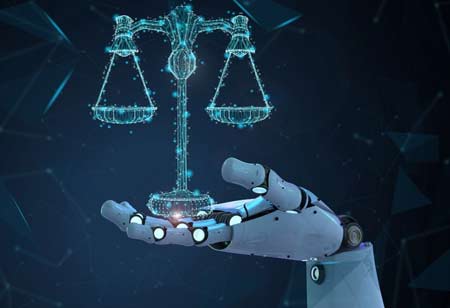THANK YOU FOR SUBSCRIBING
The Growing Role of Robotic Process Automation in Legal Sector
Reports suggest that only 10 percent of the Top 100 law firms were using AI until two years ago to advance the accuracy and pace of processing vast amounts of information.

By
Apac CIOOutlook | Thursday, October 01, 2020
Stay ahead of the industry with exclusive feature stories on the top companies, expert insights and the latest news delivered straight to your inbox. Subscribe today.
Reports suggest that only 10 percent of the Top 100 law firms were using AI until two years ago to advance the accuracy and pace of processing vast amounts of information. This figure has now increased to 40 percent, indicating that the sector has made significant strides with new, advanced technologies.
Fremont, CA: The digital revolution has taken businesses by storm, and the legal sector is under extreme pressure to keep up with the transformation and trends. As a result, law firms and professionals will need to adapt their work and become more efficient. Unlike other industries, the legal sector lags in adopting technological changes, mainly due to cultural reasons. However, changing customer behaviors and growing their expectations has led the industry to take essential steps to meet this rapid transition. Reports suggest that only 10 percent of the Top 100 law firms were using AI until two years ago to advance the accuracy and pace of processing vast amounts of information. This figure has now increased to 40 percent, indicating that the sector has made significant strides with new, advanced technologies. Despite this, there are still things that are yet to be unbarred.
Legal tech advancements help law firms with various solutions like e-billing, e-signature, dashboards, workflow automation tools, and general compliance. These solutions have become the significant adoption for the legal industry as technology stacks, and application integration picks up momentum. The hype around AI, Robotic Process Automation (RPA), and other technologies has also gained a lot of attention form legal practitioners to manage partners, practice group leaders, and general counsel. It has been found that RPA in legal practice can reduce costs by 20-40 percent while also minimizing human error and increasing compliance.
The use of RPA can be beneficial in a reduction in time and costs, mainly when the most common method of charging used by law firms is by the hour. Leveraging this solution strategically can help analyze the risk of taking on a new client and cut the cost of managing civil cases within FRC guidelines. The legal sector involves several time consuming, tedious processes that are compulsory but do not necessarily need to be acted by a lawyer. This is where the robotic process automaton comes in and can handle that task. By automating repetitive tasks to software robots, lawyers’ time is freed to concentrate on what matters significantly. The technology can also assist with legal functions in the public sector, which faces issues that require easy-to-deploy, cost-effective solutions, from a high volume of work that carries out productivity to employee shortages, cost optimization, recurrent changes in regulations and policies, and department siloing.
See also: Top Robotic Process Automation Consulting/Services Companies





